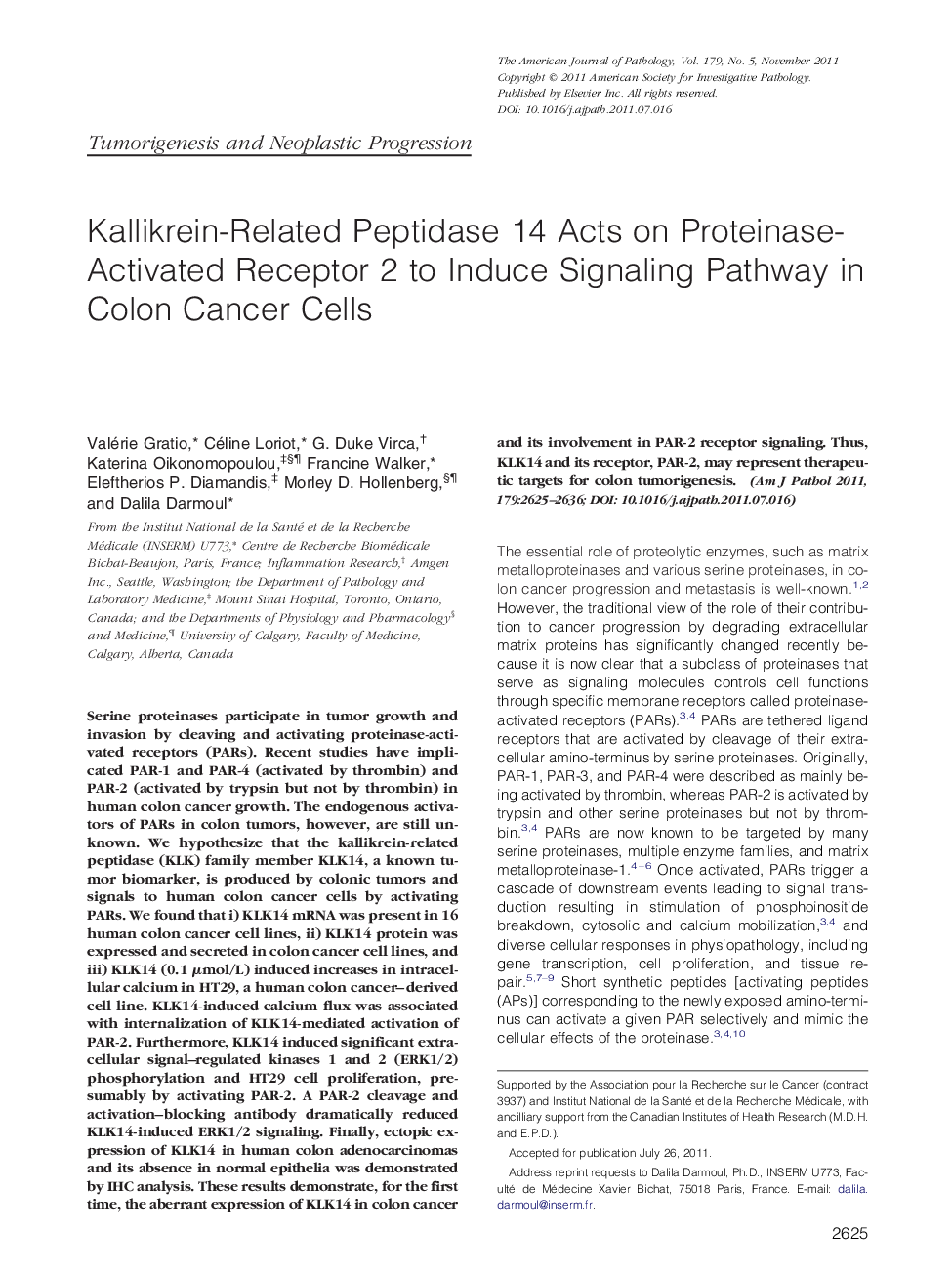| کد مقاله | کد نشریه | سال انتشار | مقاله انگلیسی | نسخه تمام متن |
|---|---|---|---|---|
| 5939057 | 1573424 | 2011 | 12 صفحه PDF | دانلود رایگان |

Serine proteinases participate in tumor growth and invasion by cleaving and activating proteinase-activated receptors (PARs). Recent studies have implicated PAR-1 and PAR-4 (activated by thrombin) and PAR-2 (activated by trypsin but not by thrombin) in human colon cancer growth. The endogenous activators of PARs in colon tumors, however, are still unknown. We hypothesize that the kallikrein-related peptidase (KLK) family member KLK14, a known tumor biomarker, is produced by colonic tumors and signals to human colon cancer cells by activating PARs. We found that i) KLK14 mRNA was present in 16 human colon cancer cell lines, ii) KLK14 protein was expressed and secreted in colon cancer cell lines, and iii) KLK14 (0.1 μmol/L) induced increases in intracellular calcium in HT29, a human colon cancer-derived cell line. KLK14-induced calcium flux was associated with internalization of KLK14-mediated activation of PAR-2. Furthermore, KLK14 induced significant extracellular signal-regulated kinases 1 and 2 (ERK1/2) phosphorylation and HT29 cell proliferation, presumably by activating PAR-2. A PAR-2 cleavage and activation-blocking antibody dramatically reduced KLK14-induced ERK1/2 signaling. Finally, ectopic expression of KLK14 in human colon adenocarcinomas and its absence in normal epithelia was demonstrated by IHC analysis. These results demonstrate, for the first time, the aberrant expression of KLK14 in colon cancer and its involvement in PAR-2 receptor signaling. Thus, KLK14 and its receptor, PAR-2, may represent therapeutic targets for colon tumorigenesis.
Journal: The American Journal of Pathology - Volume 179, Issue 5, November 2011, Pages 2625-2636